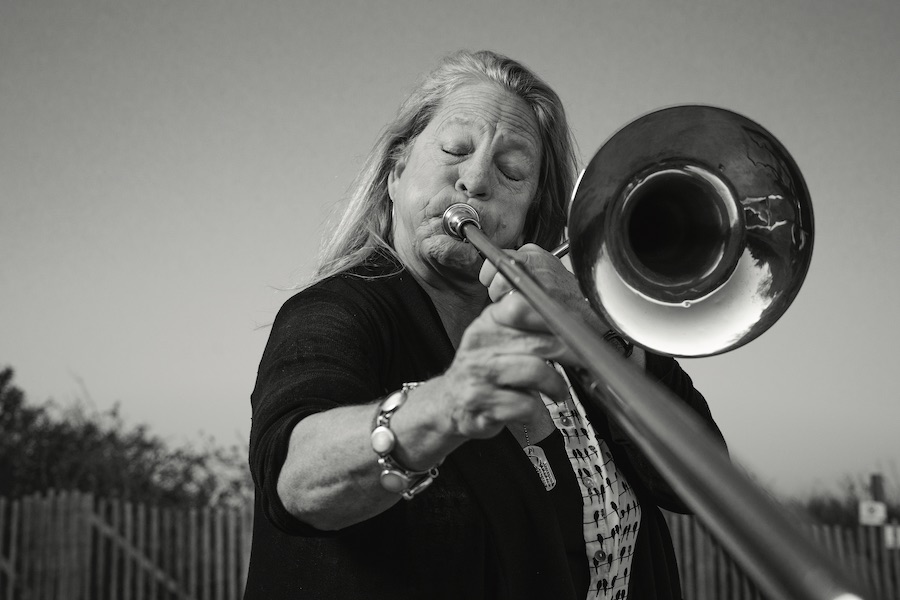
JODI BIRCHALL | MUSICIAN & TEACHER | WELLFLEET
Text based on interviews with Jodi Birchall; listen to Jodi here:
This is a really special place to me because I grew up here. We would just roll down the hill, and we’d be on the beach.
My dad was shot down in Vietnam when I was in the third grade, and he came back at the end of my tenth-grade year in high school. He was seven years a prisoner of war.
When I was old enough, I used to come down here with my oyster knife and my golden retriever, Willie, and walk the flats. Willie heard every story that I didn’t feel like I could share with anybody else growing up — school, missing Dad, sister stuff. He just sat there and listened.
When my dad was a prisoner of war, this community was what kept the family really strong. I had more aunts and uncles than I cared to have, because that’s how the village helped raise the children.
I don’t know how it would have been if we didn’t have the community. When they found out my dad was coming back from Vietnam, for free, all the local contractors put an addition on my mother’s house. Everything was donated by local builders.
Even now that the town has gotten bigger, there’s still that core. As a military brat, you travel around the world. I’ve always just been drawn back here. I came back and raised my kids here and have a core group of friends. And my kids want to stay here.
* * *
The town of Wellfleet took a huge hit this summer. Paul Sousa, the manager of the Wellfleet Market, dying of cancer; Joe Wanco, owned the Lighthouse Restaurant forever, dying of cancer; Mia Surro, dying of a potential, we think, overdose; Jonah Cavanaugh, my next-door neighbor, 42 years old, dead in his sleep. They think it might be heart. There’s just been so much tragedy this summer. I usually don’t get this quickly to tears. It’s been overwhelming.
[The community gathered in September at the Wellfleet Memorial Garden next to Preservation Hall to remember and celebrate Mia.]
Oh, the gathering for Mia was quiet and solemn as people arrived. We all knew Louie LeBart. There’s other kids whom you know that have died of overdoses. So it was a very loving, loving, loving time. It was just amazing to look out and see all the people from the community — elementary school teachers, and librarians, the market store people, bankers, the friends of the friends of the friends, and the people that are in recovery. There was a bunch of people there that met at the methadone clinic.
I thought awhile about what I wanted to say about Mia for the memorial, because what do you say about a young girl that was kind of like a daughter, who dies of an overdose way too young, when you thought she was gonna make it this time?
I am in the horse paddock mucking and actively thinking about Mia. I’m sitting there, and this yellow dragonfly came and sat right on my forearm. And it was looking at me. I’m like, “Hello?” I kept shoveling, and it didn’t move. So I looked really closely, and it had these big brown, beautiful eyes and looked blond. And that was Mia, big brown eyes.
And so I’m like, “Mia! It’s you. It’s you!” And she stayed there for a while.
I’m a believer in things beyond. But I’m also a math science person at the high school. So I know that there’s hatchings and dragonflies swarm. But I also believe that there’s more to what we know for black and white fact.
Marnie Crawford Samuelson photographs and collaborates on short documentary films and books. She lives in Wellfleet and in Berkeley, California.



